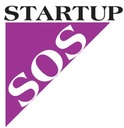Focus is critical.
As a startup, there is only so much you can do. Your product or service cannot be all things to all people. So focusing on a specific market niche, owning that niche, and expanding from there is a very good idea. It's very easy to target too big of a market, and have your team spread way too thin.
Here's the approach Paul Graham (founder of Y Combinator) takes:
I like to find (a) simple solutions (b) to overlooked problems
(c) that actually need to be solved, and
(d) deliver them as informally as possible,
(e) starting with a very crude version 1, then
(f) iterating rapidly.
Geoffrey Moore argues for focus in his Crossing the Chasm strategy: target a small niche ("bowling pin"), deliver a "complete solution", own that niche, and then move on to a related niche.
Clayton Christensen makes a similar argument for focus in The Innovator's Dilemma. The typical disruptive-change solution delivers a solution that has lower performance than industry-standard solutions, but provides a cost effective solution for one focused problem. For example, 3.5 inch disk drives, when first introduced, were much lower in performance than the 5 inch drives that dominated the market at the time. But the 3.5 inch drives were a perfect solution for then new laptop market. The 3.5 inch drives then became incrementally better and ultimately displaced the 5 inch drives.
For a startup, focus is a very good thing. Yes, you should have a big vision. But a startup is almost always better off if it:
- Starts with a focused, small, well defined, underserved target market
- Meets the unmet need - and meet it very well
- Then moves up to the next niche, and the next niche, and the
next niche …
World domination comes one step at a time!
